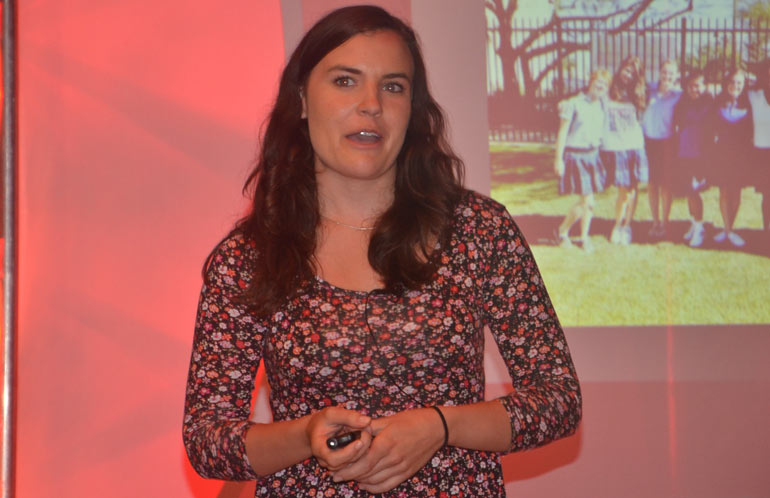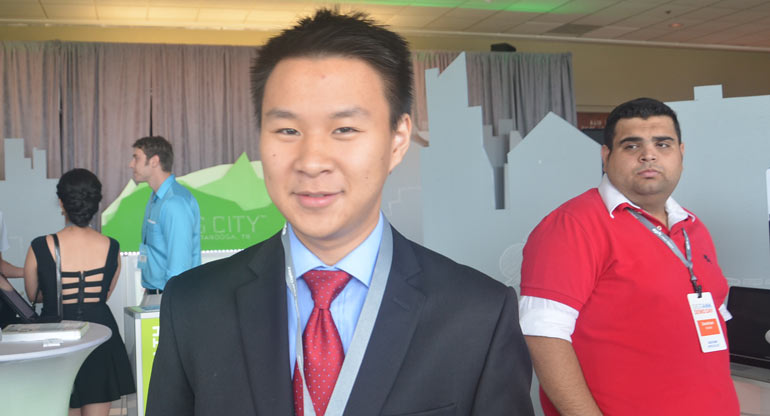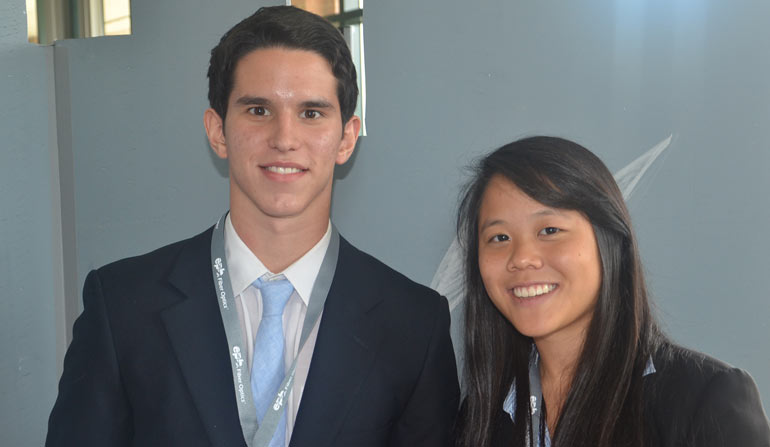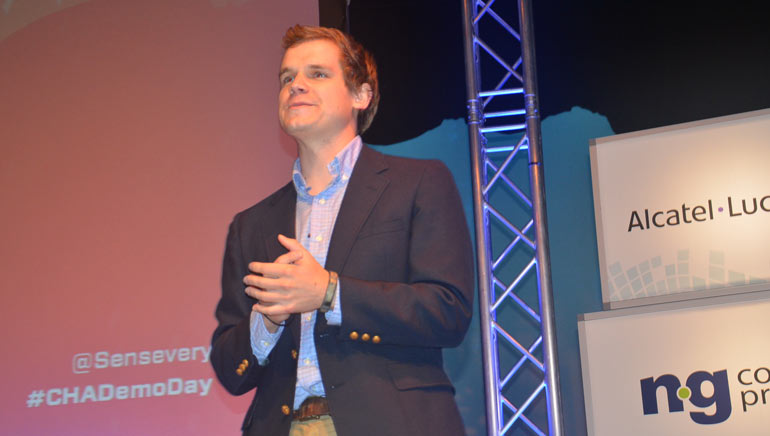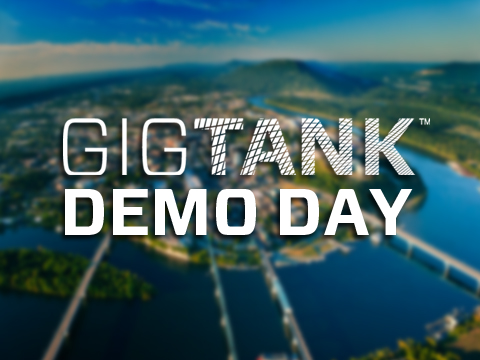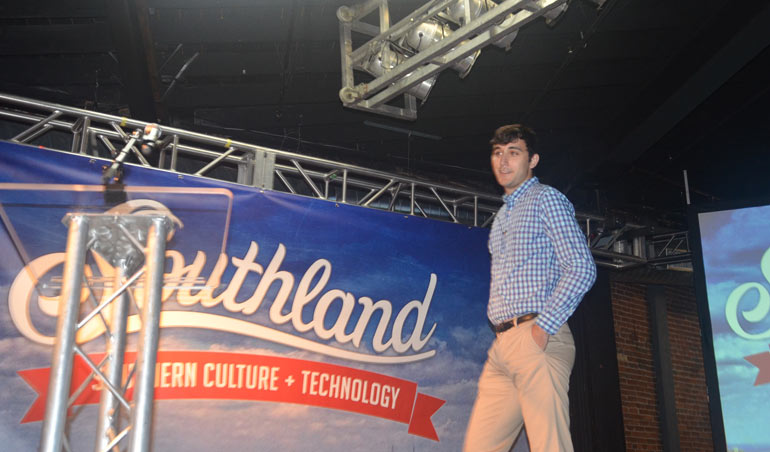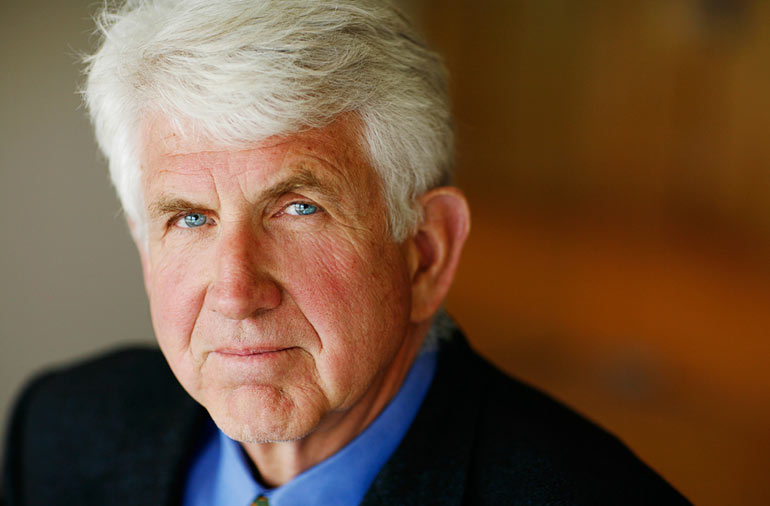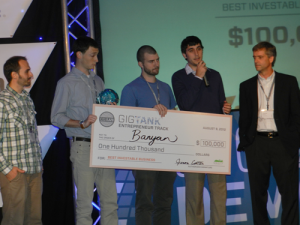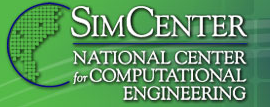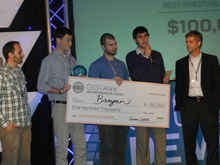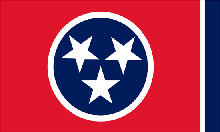 August is just about over and “Demo Day Month” in the great state of Tennessee concluded last Thursday at JumpStart Foundry’s Demo Day in Nashville. It was a month that Vice President Gore should be proud of afterall nothing says innovation like inventing the internet.
August is just about over and “Demo Day Month” in the great state of Tennessee concluded last Thursday at JumpStart Foundry’s Demo Day in Nashville. It was a month that Vice President Gore should be proud of afterall nothing says innovation like inventing the internet.
Overall it was an impressive month for innovators in Tennessee. Tennessee has nine regional accelerators and groups like Launch Tennessee are paramount in keeping the statewide ecosystem flourishing and the accelerator leaders connected with each other.
“Demo Day Month” kicked off in Chattanooga Tennessee with the graduation of the GigTank. The GigTank was in its first year and actually included two simultaneous classes; entrepreneurs and students. The entrepreneurs group accelerated at Colab in downtown Chattanooga while the students accelerated at the Lamp Post Group’s offices. The classes came together on Thursday August 9th to show off their startups.
Out of all three demo days Chattanooga had the most pizzazz. They really did a great job of setting up a bunch of entrepreneurial networking events on Wednesday evening all over town. Thursday’s Demo Day event was one to be reckoned with, professional lighting, big signage, and a simulcast on the local PBS channel all helped set the stage for some great demos.
To top that off, unlike the other two demo days, Chattanooga’s GigTank featured a $100,000 cash prize for the top voted startup in the entrepreneur class (Banyan) and a $50,000 prize for the top student startup (Babel Sushi).
Chattanooga merged traditional southern hospitality with blazing fast internet. The blazing fast internet was the reason it was called “GigTank”. Chattanooga was the first city in the United States to offer 1 GB ethernet to the home and office within a 600 square mile area.
The bad: We found out late Wednesday night that the startups would actually pitch in front of the judges first thing Thursday morning and again on Thursday afternoon in front of the people. We went around in circles about it and I even spent some time with Colab Director Shelddon Grizzle, who had come up with the idea for the double pitching. Regardless of the reasoning I didn’t like it and once I knew it was happening it detracted from my view of the actual presentations.
The other downside to GigTank is that we saw a lot of slides, a lot of presentations and a lot of business plans. Unfortunately we didn’t see nearly enough working demo products. Also most of the startups said they would build scale organically and virally over the next year and make money in year two. This isn’t a practical path to scale in a market outside Silicon Valley or New York. I felt that go to market strategies needed improvement.
The NSFW: Check out this story about the first startup that presented at GigTank.
The following week we moved on to Memphis Tennessee and the Zeroto510 accelerator Demo Day. Zeroto510 is a cohort based accelerator based on medical devices. It’s a joint venture between Memphis Bioworks and Seed Hatchery.
The ZeroTo510 Demo Day was very academic in nature and top-notch professional. You could tell that all of the startups had worked extremely hard on their presentations. One of the biggest challenges that ZeroTo510 startups overcame was actually “dumbing” their presentations down so that the public and investors without medical backgrounds could understand. Luckily all of the startups were able to do that.
The startups that we really liked at ZeroTo510 Demo Day were Bionanovations and Restore Medical.
Restore Medical offers a new system for cleaning and sterilizing surgical instruments. Their system is vital as we head into Obama Care in 2014 because it helps reduce cost, but more importantly it’s more effective in the sterilization process which will drive down hospital born infection numbers. This couldn’t come at a better time. In 2014 hospitals will need to publicize and keep down their hospital born infection numbers in order to get reimbursement on the millions of extra patients that will be seeking hospital care.
One of the biggest moments at ZeroTo510’s Demo Day was when onstage Restore Medical co-founder Shawn Flynn revealed on stage that they already had a $3.75 million dollar purchase order pending their 510k approval from the FDA.
BioNanovations is the first pre-culture bacterial infection diagnosis platform. There were some shocking facts about hospitals in co-founder and CEO Charleson Bell’s presentation that echo why we like this startup so much and why it will also be crucial going into 2014.
There was no NSFW in the Zeroto510 Demo Day however the bad was definitely Urova Medical. This wet behind the ears team of entrepreneurs had great technology and did a fair job of presenting they just didn’t have the same vigor that the rest of the startups had. They immediately left Memphis to go back home and it appeared that the young student founders of Urova simply participated in the program to get $50,000 for “summer camp”. Just calling it like I see it.
Nashville’s Jumpstart Foundry has had some practice at this. They’re definitely the veteran accelerator out of the bunch and it shows. Co-Founder and Managing Director Marcus Whitney is a serial entrepreneur himself. In addition to overseeing the day-to-day at JumpStart Foundry he is also a co-founder and the CTO of startup MoonToast a social media/network management platform with a top shelf list of clients.
The theme about Whitney was echoed over and over again throughout Jumpstart’s Demo Day, and that is he’s a pull no punches take no crap kind of guy. In fact, together with Solidus Partner and Jumpstart Foundry co-founder Vic Gatto, they ran such a tight program that three startups called it quits before demo day.
The venue for the Jumpstart Foundry demo day was great, it was open, and they did a great job with lighting and ambience. The presentations showed that the startups had been working hard on refining their message for the public and potential investors. All of the presenters did a great job of talking more and relying on slides less. When slides went up on the screen they were very graphic and very easy to understand.
The entire class had great presentations. Whitney and Baker Donelson Emerging Technologies Lead Chris Sloan (also a mentor at JSF) both agreed that the most improved startup was PhotoRankr. Sloan and Whitney both commented that if any startup in this years JSF class showed what an accelerator does it was PhotoRankr.
PhotoRankr definitely topped our list of favorites at the JumpStart Foundry Demo Day. We also really liked The Skillery and their off-line workshops platform that empowers small business owners to teach classes on subjects they actually know and love.
We can’t report on JSF Demo Day without mentioning EverMind either. EverMind is a consumer monitoring system for the elderly. It works as easily as installing a “Clapper” you simply take the plug-in modules to your elderly loved ones home and hook them up to the coffee maker, television, lamp, toaster or other small electronics and it monitors their daily routine. When your loved one deviates from the routine you’re notified and you can check on them. The system gives them independence and piece of mind. It helps that it was also founded by a group of folks from Griffin Technologies, a Nashville company that makes some of the most widely known iPhone, iPad and Android accessories.
As for the NSFW, it wasn’t really NSFW it was more just ugly. The startup we liked the least at JSF was by a landslide KiWi, first off there are hundreds of other short form video services out there, can anyone say SocialCam. But the thing that drove us to even point this out was that at the end of the micromachine-man-esque presentation the founder of Kiwi actually said he would look for term sheets in Nashville for 30 days and then go somewhere else. Seemed like an F-U to the hard work that Whitney, Gatto and the entire crew at Jumpstart Foundry Demo Day put on.
It was also great that folks from Memphis like Biowork’s Allan Daisley and a>m ventures Patrick Woods were right there with us at all three demo days to support Chattanooga, Memphis and Nashville as parts of a whole “Tennessee”, the Nashville guys.. not so much.
Linkage:
More Demo Day Coverage Here
Nibletz is the voice of startups everywhere else




